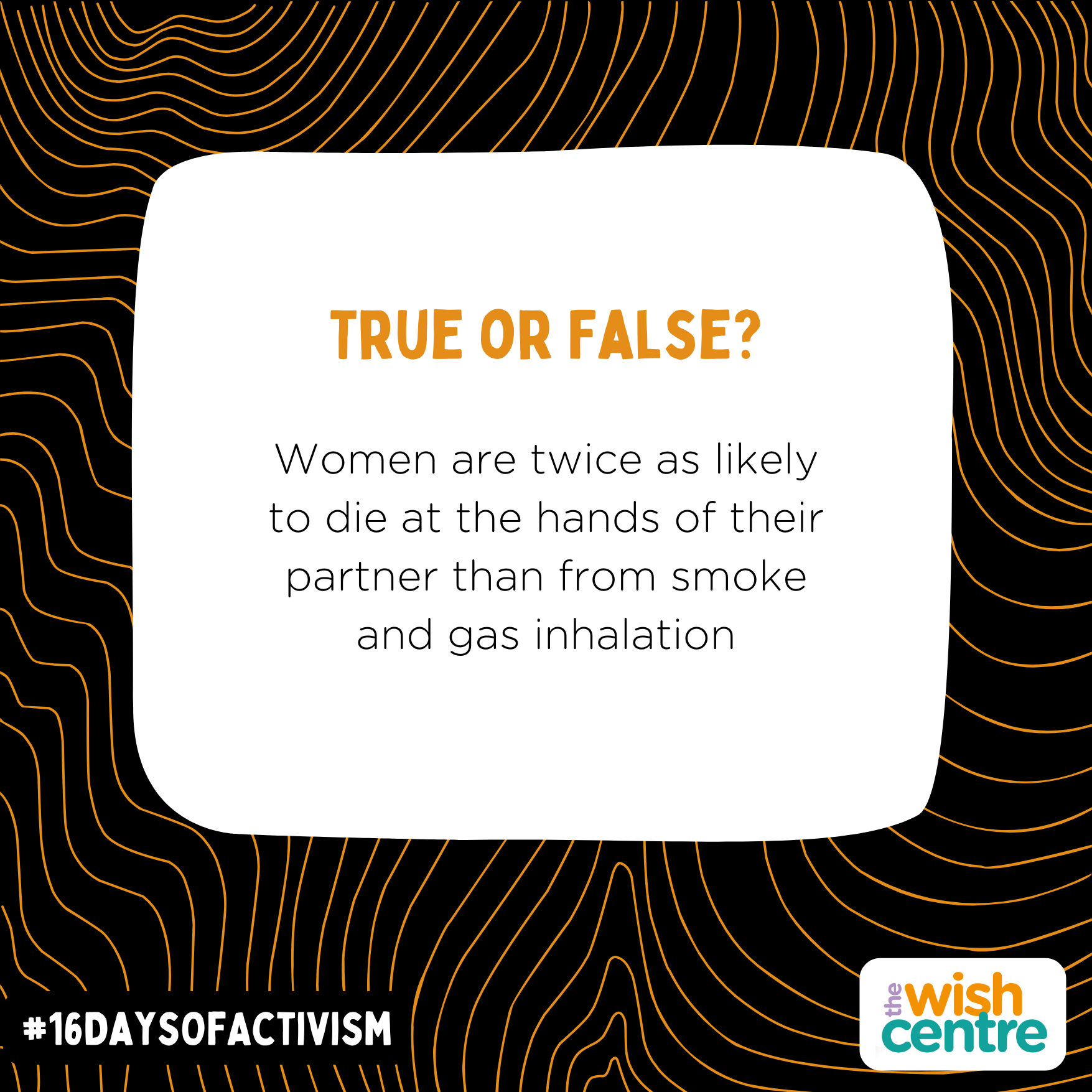It's all TRUE - Why The 16 Days of Activism are Important
Back to newsFor the last 16 days we’ve been sharing quotes and statements on our social media for followers to guess if they are True or False. Unfortunately, they are all TRUE. And that is why the 16 days of activism against gender-based violence is a crucial campaign.

It should be a difficult guess as to whether statements like these are true or false, but we live in a world where gender inequality is still prevalent and hatred against women and girls is on the rise to the point where it is being treated as a National Emergency by police and a form of extremism by the Home Office.
Harmful ‘incel’ cultures and the influence of online misogynists have created a toxic belief system among moldable minds of children and young people. With platforms like X, (formerly Twitter) removing most restrictions on harmful content, it is easy for people to share/interact with it freely and without consequences.
Domestic abuse is one of the many crimes that is gender-based. With a higher percentage of women experiencing abuse and violence from a male partner. Young people aged 16-24 years are the most at risk age group to experience domestic abuse with some studies suggesting it may be an even younger group.
49% of boys aged 13-17 thought hitting a partner would be 'okay' in certain scenarios.
Throughout the 16 days, Women’s Aid have been describing domestic abuse as an ‘ignored emergency’ as it so often gets overlooked and remains hidden behind closed doors.
They have found that four in five Brits don’t believe the scale of the issue of domestic abuse in the UK is greater than that of a car accident/house fires. The campaign features two films ‘Fire Safety’ and ‘Car Safety’, styled like a classic safety video, depicting familiar emergency scenarios that audiences instinctively know how to respond to. However the films actually highlight how prevalent and deadly domestic abuse is, pairing the impactful images with facts like ‘Women are twice as likely to die at the hands of their partner than from smoke and gas inhalation’.
As well as our social media campaign, The Wish Centre has been working collaboratively with the NSPCC and other local organisations on a campaign called ‘Breakthrough’. The campaign is focusing on helping young people to spot the signs of abusive behaviours in relationships and aims to ultimately help break the cycle of abuse with interventions for those that seek support.
On the 25th Nov, also White Ribbon Day, the play titled ‘It’s Not Love’ began being shown in Blackburn with Darwen schools. Written by York St John University with input from local young people it is followed by workshops for the audience to discuss the characters and issues in more depth. Read more about it here.
The Truth:
- Only 20% of frontline professionals feel truly confident to engage with domestic abuse perpetrators
- 1 in 4 perpetrators of domestic abuse are repeat offenders with multiple victims
- Manipulation and victim blaming remain systemic barriers to meaningful intervention
- Childhood experiences profoundly shape adult behavioural patterns
- As a society, we still put the burden of leaving an abusive relationship on the victim instead of holding the perpetrator to account
Fewer than 1% of the more than 400,000 perpetrators across England and Wales get a specialist intervention that might prevent further abusive behaviour. (The Hampton Trust)
A perpetrator will have an average of 6 victims in their lifetime. It is time we put the pressure on abusers to change.
The Wish Centre is committed to offering a whole family approach to tackling domestic abuse and our support services include Behaviour Change Programmes for men who recognize they are abusive and want to change. This is open to men who live in BwD or whose partners lives in BwD. Find out more and how to refer into the programme.
